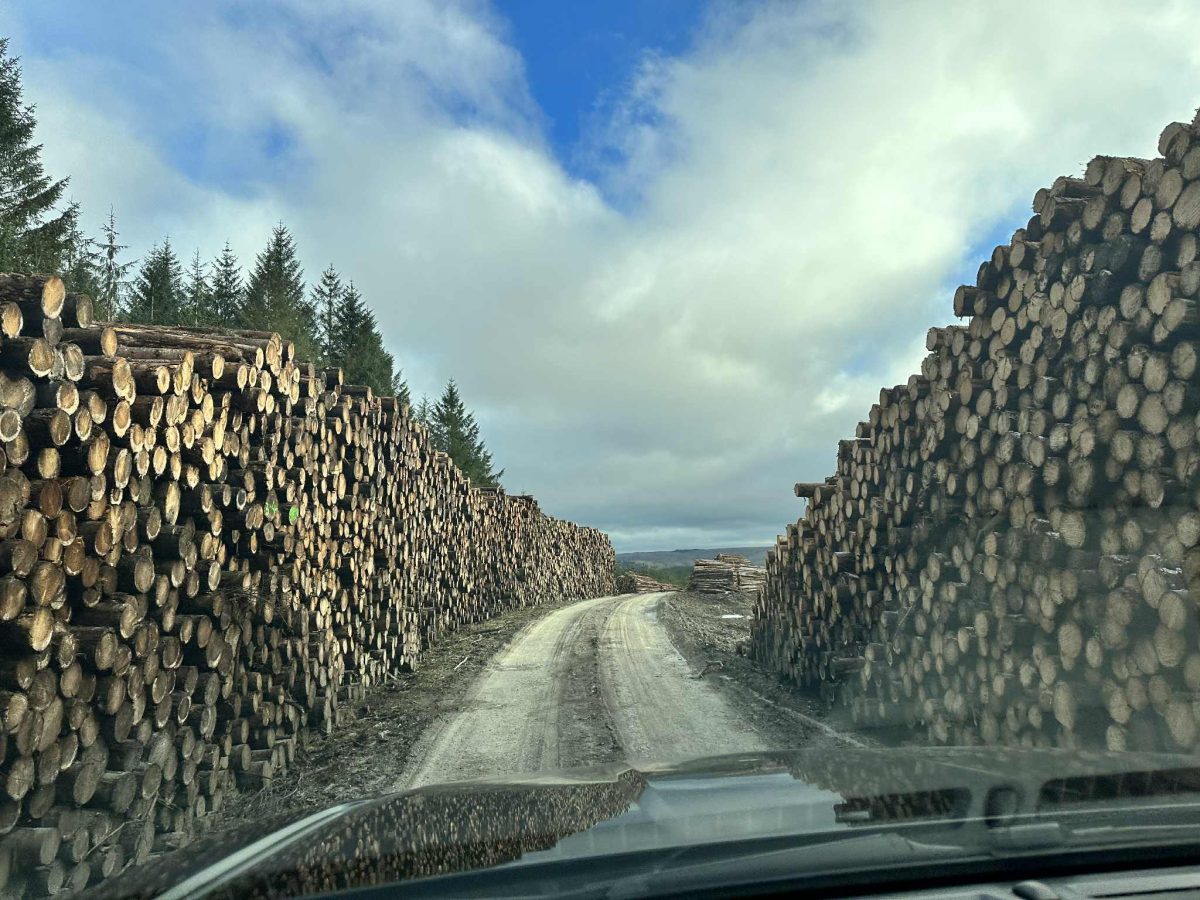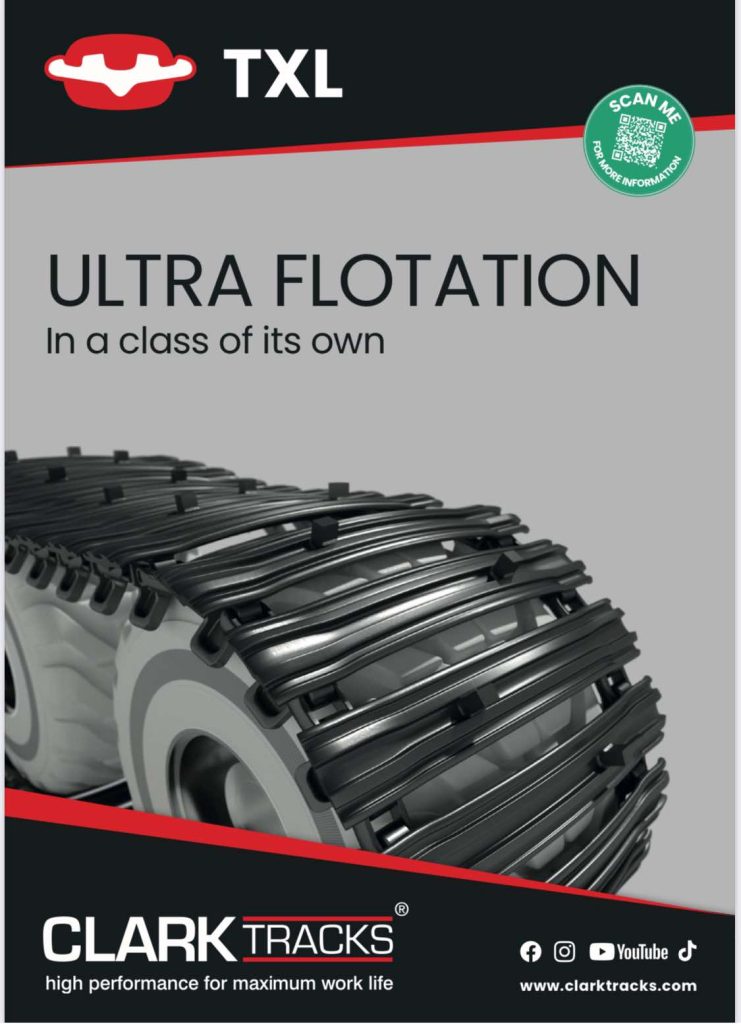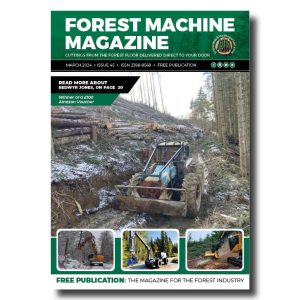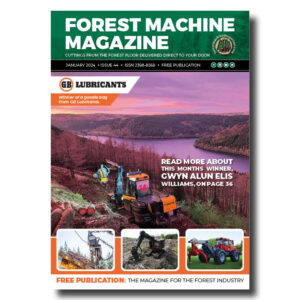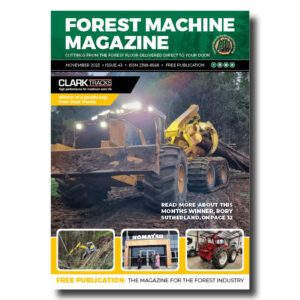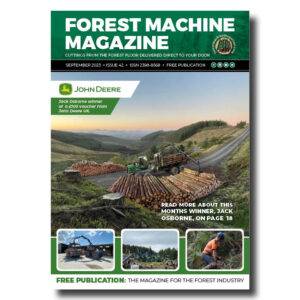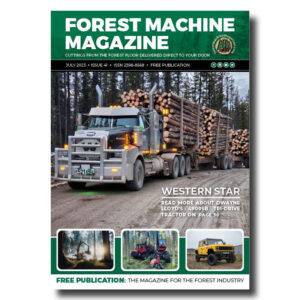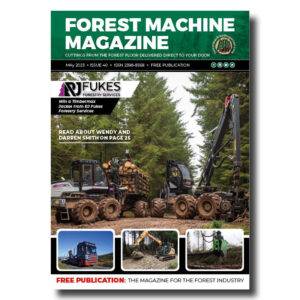Fraud threatens collapse of world’s biggest wood sustainability watchdog, the Forest Stewardship Council (FSC)
The credibility of Bonn-based Forest Stewardship Council (FSC) – the world’s largest green label for wood products – is facing its gravest threat yet. A new analysis released by London-based environmental investigation non-profit Earthsight reveals that up to $30 billion in fraudulent FSC-certified goods may be entering global markets each year. At the General Assembly in Panama, FSC members will vote on the need for a key traceability requirement – a watershed moment that will determine whether the organisation finally takes serious action to tackle the fraud crisis at its heart or drifts into irrelevance.

-
That’s a remarkable amount of work hours for a single machine, the Norcar 600 owned by Erkki Rinne is taken well care of, it even has the original Diesel engine.
-
Kieran Anders is a forestry contractor working in the lake district. His work involves hand cutting and extracting timber using a skidder and tractor-trailer forwarder.
-
It is not possible to eliminate chain shot, but there are simple steps that can be taken to reduce the risk.
-
Arwel takes great pride in the fact that the mill has no waste whatsoever, “the peelings are used for children’s playgrounds, gardens and for farm animals in barns in the winter and the sawdust has multiple uses in gardens and farms as well.
-
Timber hauliers need to encourage young blood in, and also look after the hauliers we have, we need make the sector a safe and positive place to work.
FIND US ON
- A new analysis shows that $10–$30 billion in fraudulent wood products certified by green label for wood Forest Stewardship Council (FSC) may be sold each year globally – a scale far greater than previously understood
- The analysis pulls together FSC’s own investigations to show that, unbeknownst to consumers, the fraud has affected a vast array of products, from toilet roll and furniture to plywood, charcoal, and pellets
- Almost all major cases have been caught not by the green label’s own systems, but by NGOs, journalists and whistleblowers
- A motion tabled at a global FSC gathering in Panama next week is the last opportunity to introduce mandatory volume-based traceability – a basic requirement to protect FSC’s future and align it with EU legislation
- Previous efforts to stamp out fraud have been vetoed by FSC’s wood company members. Earthsight is calling on the remaining NGO members to stage a walk out if the same thing happens again
“This is the last call to save FSC,” warned one of the world’s leading FSC auditing firms.
Fraud has been uncovered in every major region and product category, involving some of the biggest players in global forestry and retail: from China’s largest plywood exporter to a top-five global pellet producer, with fraudulent goods ending up on shelves at IKEA, Aldi, Lidl and other retail giants.
But these are just the cases FSC has shared information about and almost all of them have been exposed by outsiders including Earthsight, not FSC’s own systems. Given how little of FSC trade these cases represent, the real figure is almost certainly far higher than the already shocking totals uncovered.
These issues are not new. In 2021, more than 30 civil society organisations signed an open letter warning FSC leadership about deep systemic failures, including weak oversight, corporate capture, and a lack of accountability. Those warnings went unheeded – and the fraud crisis has only worsened since.
Even when fraud at the wood watchdog is proven, the analysis shows that enforcement is weak. Blacklisted companies routinely re-enter the system within months. Penalties are minimal and easily circumvented. Meanwhile, there is a growing mismatch between supply and claimed volumes. Certified forest area is down 30 per cent since 2022 after the withdrawal of Russian and Belarusian forests from FSC following the Ukraine war but the number of companies licensed to trade FSC-certified wood is up 37 per cent – fuelling a perfect storm for widespread abuse.
Technologies trumpeted by FSC as solutions – such as scientific testing or blockchain – offer only token improvements, Earthsight’s analysis shows. Without a robust system to track volumes across the supply chain, they are functionally meaningless.
Meanwhile, governments are already outpacing FSC. The EU Deforestation Regulation (EUDR) – which is set to come into force at the end of 2025 for large companies – requires full traceability and geolocation of timber sources. If FSC fails to pass the traceability requirement (tabled as Motion 30), its system will fall behind EU law, making its label effectively obsolete in one of the world’s largest wood product markets.
Motion 30 offers a clear, practical fix – mandatory volume-based traceability, closing the loopholes that have allowed billions in fraudulent products to flood the market. For it to work, implementation must be accelerated and industry members must not be allowed to veto reform, as they have before. The world’s forests cannot afford another decade of FSC inaction. FSC faces multiple systemic problems. But if it cannot even take this most basic step to address rampant fraud, its credibility is beyond repair.
“Whenever anyone goes looking for FSC fraud, they nearly always find it,” said Sam Lawson, Director of Earthsight. “This is a billion-dollar scandal hiding in plain sight. If Motion 30 fails, FSC will have proven itself unfit for purpose, and the world’s leading environmental organisations must stop lending it credibility, and walk away.”

Sign up for our free monthly newsletter here
Contact forestmachinemagazine@mail.com to get your products and services seen on the world’s largest professional forestry online news network.
#homeoflogging #writtenbyloggersforloggers #loggingallovertheworld
Written by loggers for loggers and dedicated solely to the equipment used in forestry operations.
